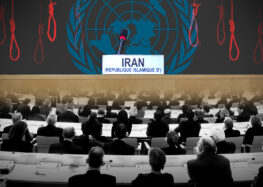Telegram’s Efforts to Increase Download Speed in Iran Raises Questions

Placement of Telegram CDNs in Iran Requires Increased Transparency
June 27, 2017—In light of the decision by the messaging application Telegram to use closed content delivery networks (CDNs) —caching servers that allow faster delivery of multimedia data—in Iran, the Center for Human Rights in Iran (CHRI) urges the company to ensure that the Islamic Republic does not use the new service to interfere with user activity in any way.
“Given the Iranian government’s consistent pattern of pressuring companies to enter into arrangements that could potentially affect user access or security, we urge Telegram to be fully transparent about all requests from the Iranian government,”said CHRI’s Executive Director Hadi Ghaemi.
Since Iran signed the nuclear deal with world powers in 2015, more companies have been using or building infrastructure in Iran, bolstering the need for companies like Telegram to be fully transparent about its dealings with state officials or entities and ensure the highest possible level of user security standards.
In countries where privacy, the right to access to information, and freedom of expression are protected, CDNs do not raise issues. But Iran’s record on internet surveillance and censorship is poor, with hardliners in the government viewing any form of internet freedom as a threat to the Islamic Republic.
If using CDNs in Iran is the first step in a process of Telegram’s gradually increasing presence in Iran, then the company could become an attractive target to Iranian hardliners who have previously demanded that the government of President Hassan Rouhani filter or block access to the app. It could also bolster their claims that Telegram is working with Iranian officials.
Telegram has consistently pledged it will not compromise user accounts in any country context. It states it has not placed “Telegram servers” in Iran, but only CDNs. On its FAQs page, Telegram says it uses CDNs for “caching media from public channels with over 100,000 members.”
On July 22, 2017, Iran’s Deputy Telecommunications Minister Nasrollah Jahangard claimed “Telegram had agreed to move servers to Iran” in accordance with a directive from the Supreme Cyberspace Council.
The app’s founder and CEO Pavel Durov denied Jahangard’s claim: “No Telegram servers (or any other servers with private data of our users) will be moved to Iran or installed there,” he tweeted.
In a post published the next day, Durov added, “It seems that politicians/journalists sometimes refer to an internet traffic provider or a CDN provider that delivers or caches encrypted data of Telegram as ‘Telegram’ or ‘Telegram servers’, thus misleading the public.”
He continued: “There’s a world of difference between them: Telegram servers store private data and will never ‘travel’ to countries with internet censorship, while internet providers and CDNs operate all over the world and have no access to the private data of Telegram (and other secure apps).”
Internet security expert Collin Anderson, who has investigated the installation of CDNs in Iran, told CHRI, “Those companies that build a presence in Iran, even if only with the smallest footprint, must be fully transparent and upfront about their actions.”
Telegram’s decision comes at a time of increased state imposed regulations on owners of public channels on the app. In January 2017, the Ministry of Culture and Islamic Guidance required all channels with more than 5000 followers to register with the ministry and install a state-controlled bot with admin access in a move that widened government internet surveillance powers.
Telegram has not provided details about the CDN providers it is working with in Iran or the CDN’s data traffic in Iran. These issues could be addressed in a transparency report, which are often issued by large social media companies.
“Telegram is the most popular messaging app in Iran, used by some 40 million Iranians,” added Ghaemi. “Any dealings with Iranian government agencies that could endanger the security, freedom and privacy of its users seriously undermines trust in the network and encourages mass migration to networks that are more secure.”
Update on July 27, 2017: After the publication of this article, Telegram CEO Pavel Durov tweeted the following to CHRI: “To the contrary – local caching nodes can’t aid state censors even in theory.” CHRI responded: We reflected your opinion, but IRI can always delete content based in Iran/write code to do it automatically b/c no independent CDNs there. In its responses, Telegram acknowledged its use of CDN servers in Iran. Based on information provided to CHRI by Telegram, this article was also updated to reflect that CHRI is specifically talking about CDN content in Iran and the potential disruptions that could occur and also reflect Telegram’s point of view on this issue. The article was also updated to reflect technical clarifications regarding the implications of CDN use in Iran and the need for transparency regarding any agreements concerning information and communications technology (ICT) with the Islamic Republic moving forward.






